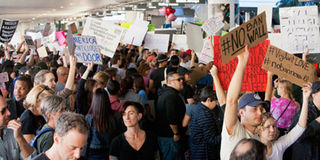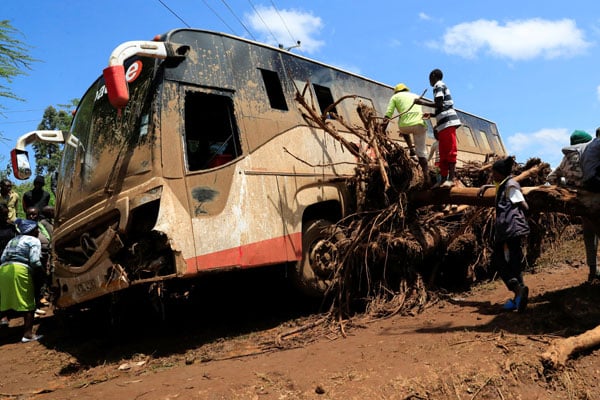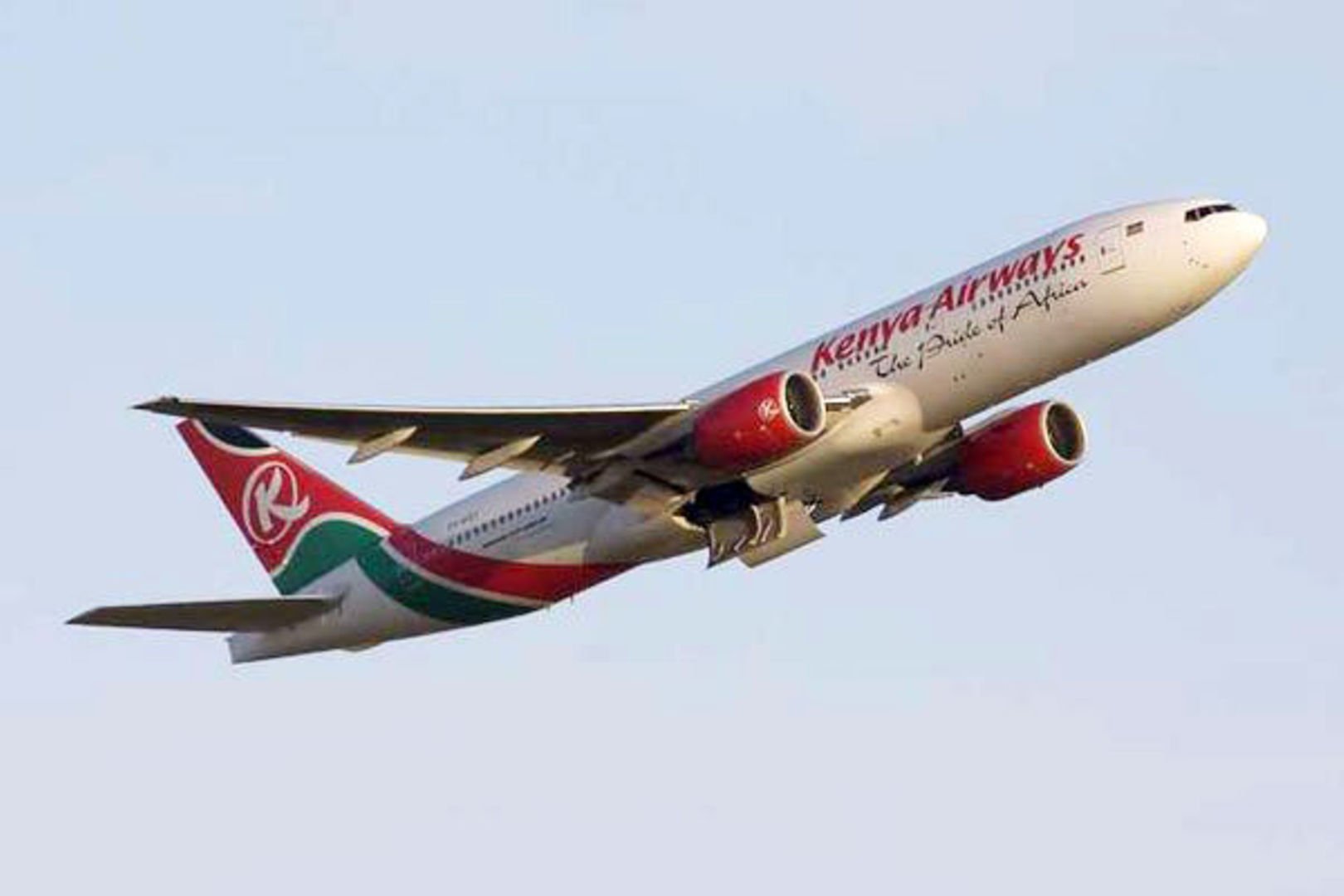Canada offers temporary home to immigrants stranded by Trump order

Protesters gather at the Los Angeles International airport's Tom Bradley terminal to demonstrate against President Trump's executive order effectively banning citizens from seven Muslim majority countries. US President Trump signed the controversial executive order that halted refugees and residents from predominantly Muslim countries from entering the United States. AFP photo
Ottawa- Canada will offer temporary residence permits to people stranded in the country as a result of US President Donald Trump's travel ban, the immigration ministry said Sunday.
"Let me assure those who may be stranded in Canada that I will use my authority as minister to provide them with temporary residency if needed as we have done in the past," Immigration Minister Ahmed Hussen said at a news conference.
Hussen did not indicate how many people could be concerned by this measure, but he said that the Canadian authorities were so far unaware of anyone stranded in the country by the US order.
Trump on Friday suspended the arrival of all refugees to the US for at least 120 days and barred entry for 90 days to people from seven Muslim-majority countries: Iran, Iraq, Libya, Somalia, Sudan, Syria and Yemen.
Hussen, who is of Somali origin, said the Trump administration had assured Ottawa that Canadians holding dual nationality with those countries would not be affected by the US ban.
He said that people from those seven countries who have a valid Canadian permanent residency card can still enter the United States. However, under the US order, the ban will apply to people from the targeted countries who are passing through Canada.
More than 35,000 Canadians with dual citizenship are also citizens of one of the seven countries, he added.
Hussen did not condemn the US measure but stressed that Canada would continue to pursue an immigration policy based on "compassion" while at the same time protecting the security of its citizens.
"We welcome those fleeing persecution, terror and war," he said, echoing an open-arm Twitter post by Prime Minister Justin Trudeau on Saturday.
Leaders of a group of Canadian technology companies urged the government to provide "targeted" visas for temporary residence in Canada to those displaced by the Trump order.
"Canadian tech companies understand the power of inclusion and diversity of thought, and that talent and skill know no borders," the leaders said in a joint open letter.
Hussen, questioned about their proposal, said that Canadian authorities were continuing to monitor developments in the situation, but had not made a decision.
An opposition Canadian party, the New Democratic Party, called Sunday for an emergency debate in parliament on the Trump order. The US ban will have "disastrous implications" for thousands of people, an NDP spokeswoman said.
According to the latest Canadian census, from 2011, one out of five people in the country are foreign-born.
Canada has welcomed more than 39,670 Syrian refugees between November 2015 and early January 2017, according to government figures.
Who is affected by Trump's immigration order?
Washington, United States. Ambiguity reigned Sunday as to the finer details of Donald Trump's temporary ban on incoming refugees and travelers from seven Muslim countries, with questions remaining about how exactly the measures affect various populations.
The order initially took many travelers by surprise, especially those already aboard airplanes en route to the United States as the president signed the measure into force on Friday afternoon.
Administration officials reported that 109 people had been detained as they arrived in the United States on Saturday, of which "a couple dozen" individuals were still being held as of Sunday morning.
The following is a list of the nationalities and groups of people affected by Trump's order, which is titled "Protecting the Nation from Foreign Terrorist Entry into the United States."
Refugees
The decree prohibits entry to all refugees, regardless of nationality, for 120 days. Beyond that time, the United States will admit a maximum of 50,000 refugee in 2017, more than halving the 110,000-person limit set by former president Barack Obama.
The US refugee program was previously frozen for three months following the September 11 attack in 2001.
Syrians
All Syrians, refugee or otherwise, are forbidden from entering the United States until further notice.
According to the United Nations High Commissioner for Refugees, the Syrian war has forced 4.8 million people to flee the country since 2011.
The Syrian Observatory for Human Rights said in December it had recorded the deaths of 312,001 people since the conflict began with anti-government protests in March 2011.
Iran, Iraq, Yemen, Somalia, Sudan and Libya
No visas will be issued for 90 days to migrants or visitors from seven mainly Muslim countries: Iran, Iraq, Libya, Somalia, Sudan, Syria and Yemen.
Green card holders
The decree does not affect those who hold a US green card. Secretary of Homeland Security John Kelly declared the entry of lawful permanent residents to be "in the national interest."
However, White House Chief of Staff Reince Priebus said that nationals from the seven countries named in the order should expect to be subject to increased border controls.
Visa holders
All visa holders coming from the seven specified countries are subject to the new order, with the exception of those who hold diplomatic visas or visas to international institutions such as NATO or the United Nations.
Judges in at least four states have blocked part of the ban, ordering authorities to stop deporting refugees and other travelers stuck at US airports.
Binationals
The situation for individuals with dual nationality remains complex. US officials said Saturday that American citizens who also have a passport from one of the seven barred countries are not affected by the order.
An exemption is also granted to dual nationals holding British and Canadian passports.
Britain said its nationals would not be subject to additional checks unless they traveled directly to the US from one of the listed countries.
But dual nationals who hold passports from one of the seven countries plus an additional foreign country will not be able to gain entrance.



